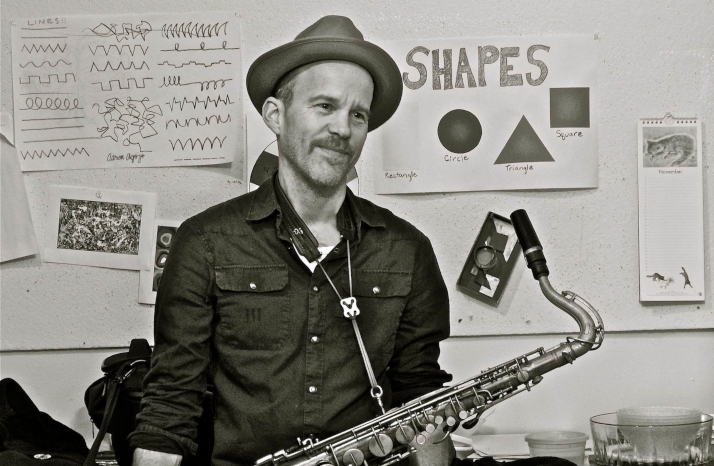 When saxophonist Chris Speed began his slow-motion move from New York to Los Angeles in the middle of the last decade, he arrived just as Kamasi Washington and the Brainfeeder crowd were making LA the hot new jazz scene.
When saxophonist Chris Speed began his slow-motion move from New York to Los Angeles in the middle of the last decade, he arrived just as Kamasi Washington and the Brainfeeder crowd were making LA the hot new jazz scene.
But Speed, who will appear Sunday at BOP STOP leading a trio of bassist Chris Tordini and drummer Dave King, was no bandwagon jumper. “I don’t really know the scene,” he averred. “I’m just kind of focused on what I’m doing, and when I’m in LA I’m just more of a homebody.”
Some homebody. When I spoke with Speed earlier today, he was walking down a Brooklyn street the morning after the trio’s gig in Philadelphia. The night before that, he was in St. Louis with King in the reconstituted lineup of The Bad Plus. Tomorrow he will fly to Minneapolis to begin the trio’s tour of the Midwest to support the June release of Despite Obstacles (Intakt Records).
It’s the fourth in a series of recordings by the band that began in 2014 and presents a compact unit that in the voices of Speed’s clarinet and 1922 Conn Chu Berry-model tenor saxophone, puts melody in the spotlight with a balance of freedom and formal rigor, openness and concision.
Now 56, Speed has been on the scene for three decades, playing everything from Balkan folk-inspired music with Slavic Soul Party and his own Pachora band to the generative, corkscrewing improvisational adventures of Tim Berne’s influential Bloodcount unit.
In that context, Speed’s lean approach on Despite Obstacles sounds like a return to first principles, though Speed sees the record as the latest way station on a continuum.
Speed’s journey began in Seattle where he was part of a cohort of improvising musicians that included trumpeter Cuong Vu, saxophonist Andrew D’Angelo and drummer Jim Black. Far from the capitals of jazz taste making these PNW improvisors developed idiosyncratic voices ready to be plugged in to the ferment of the Downtown New York scene centered on the Knitting Factory.
And Speed was in the middle of it, forming Human Feel with Black, D’Angelo and influential guitarist Kurt Rosenwinkel, looping in Icelandic bassist Skuli Sevrisson for his own Yeah NO band with Black and Vu, and for Pachora alongside Black and guitarist Brad Shepik. Speed’s sideman gig with Bloodcount spawned associations with Oscar Noriega, who like Speed, is a persuasive advocate for the clarinet, and with the band Broken Shadows, which also counted as members bassist Reid Anderson and King, the rhythm team behind The Bad Plus. Map out Speed’s twining musical associations over three decades and it might look like a complex graphic score.
“I think every artist has their community that they work with and it’s always a balance of bringing new people into your community and also keeping true to the people that you trust and that you’ve developed something with and that you have a language with. I put importance to that. I would always like to keep broadening my community and staying open and curious,” Speed said.
“I’m just trying to make good music and hopefully I’m becoming a better musician the older I get and making better musical choices.”
Chris Speed Trio Sunday, Sept. 17, 7 p.m. at BOP STOP, 2920 Detroit Rd., $20 available here.
